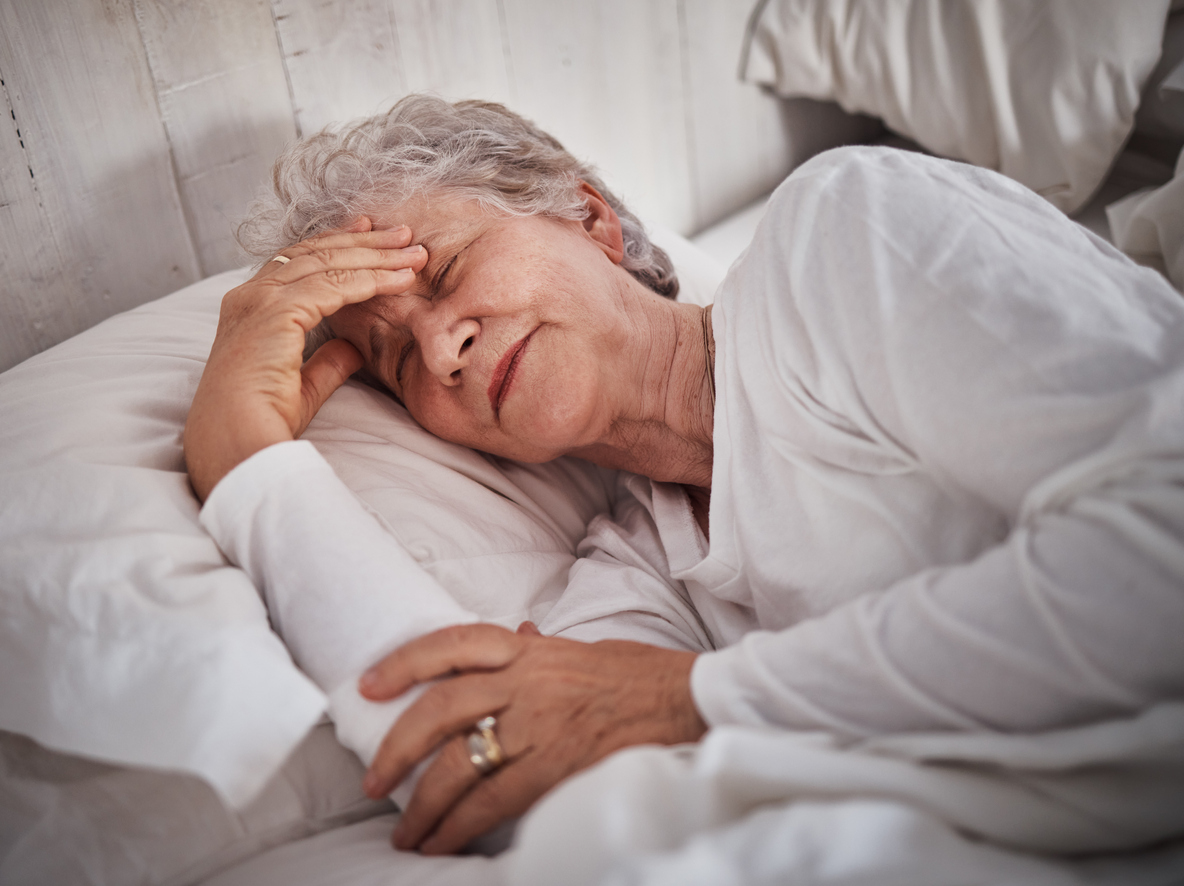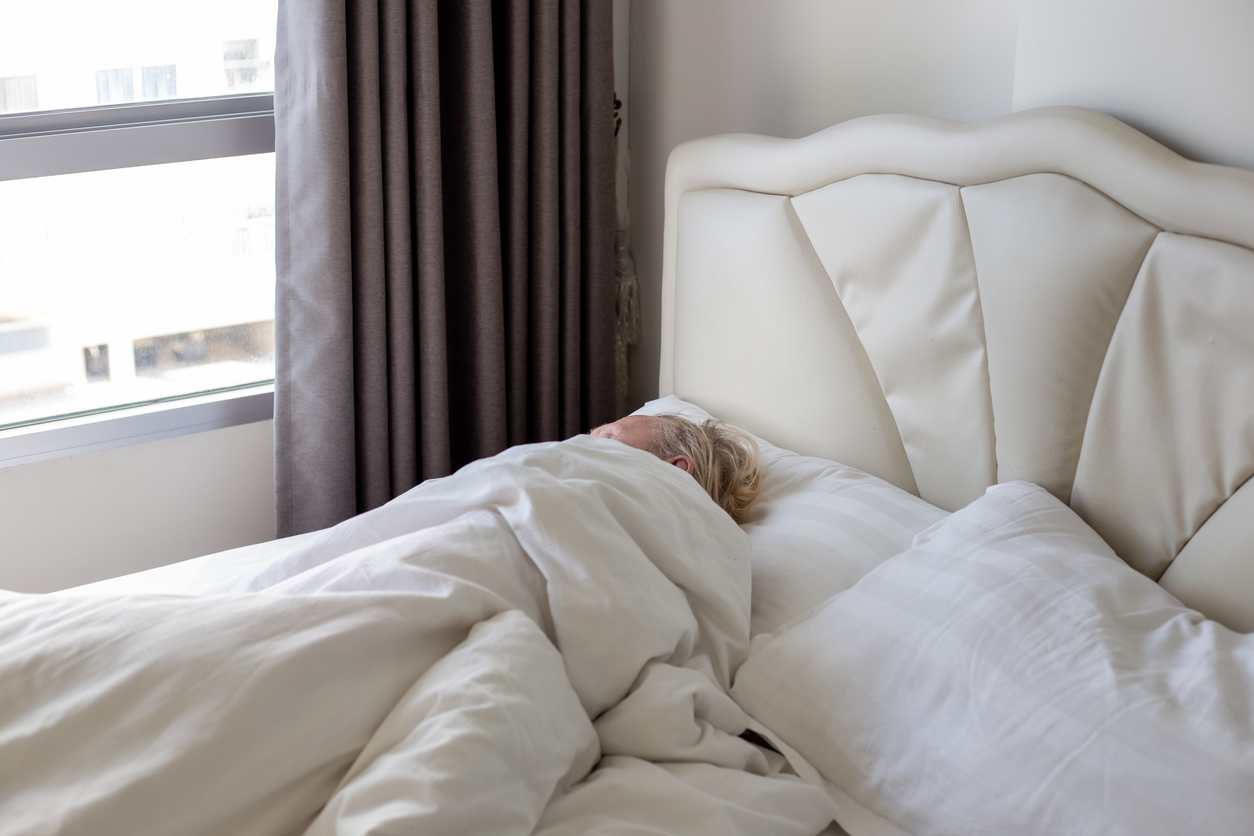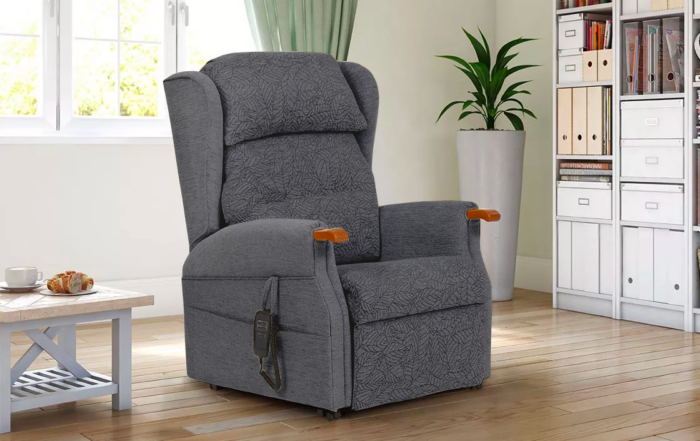What Causes Sleep Disturbance and How to Avoid It
Social Links
Sleep – it’s something all humans have in common, and something we all need to function effectively. It impacts on every aspect of our lives, from health and wellbeing to cognitive function. And yet, considering we’ve had so much practice at it – a lifetime, in fact – it’s surprising that many of us have so much trouble with it.
Sometimes, the reason for a bad night’s sleep may be obvious: a snoring partner, a loud noise from outside or even the coffee we had after dinner. But many of us experience sleep disturbances without knowing why, or even being aware of it at all. It’s even estimated that about suffer from some kind of sleep disorder. So, if you have trouble getting to sleep, staying asleep or feeling refreshed after sleep, one thing, at least, is clear: you are not alone.
- What is Sleep Disturbance?
- Sleep Disturbance Causes
- How to Avoid Sleep Disturbances
- Consider What You’re Sleeping On
What is Sleep Disturbance?
“Sleep disturbance” is an umbrella term that encompasses a range of sleep disorders. This includes trouble getting to sleep, waking up frequently, not being able to get back to sleep, and events called partial arousals which is when you wake up without realising it.
There are over 80 recognised sleep disorders, many of which are symptoms of other underlying problems. Some you may be familiar with include sleep apnoea, heartburn, insomnia, restless leg syndrome and jetlag.
In many cases, sleep disturbances interfere with our natural 24-hour sleep-wake cycle (also known as circadian rhythms or body clock), which is influenced not just by how long we sleep, but also by how much continuous sleep we get. Uninterrupted sleep allows us time in each of the sleep cycles, from light sleep, when we do our emotional and mental processing, to deep sleep, when the body rests and heals.
Sleep pattern disturbance, or lack of time in each cycle, can therefore result in daytime symptoms that we may not necessarily associate with our quality of sleep. Excessive fatigue or sleepiness are to be expected. Less well known is the impact that sleep pattern disturbances many have on susceptibility to accidents, impairments in cognitive abilities such as concentration, memory and decision making, and the kind of general mood disorders our loved ones might refer to as ‘grumpiness’.
Over time, poor quality of sleep can increase the risk of heart disease, diabetes, immunodeficiency, hormone imbalances, obesity and depression, impair our ability to recover from injury and damage our relationships with those around us. With that in mind, if you think you may be suffering from a sleep disturbance, it’s worth investigating further.
Sleep Disturbance Causes
Many issues could interrupt your sleep, and they could be physical, psychological, obvious or just downright mysterious. Some common causes include:
- Breathing disorders such as sleep apnoea, asthma, snoring or emphysema. These are often responsible for partial arousals, or micro moments when you wake up briefly. Even if you don’t remember them, they interrupt your sleep cycles and decrease the overall quality of slumber.
- Movement disorders for example restless leg syndrome, when the overwhelming urge to move keeps you awake.
- Insomnia, when you just can’t fall asleep. This is often caused or accompanied by some kind of psychological issue, such as post traumatic stress disorder (PTSD), grief, anxiety or depression.
- Age. As we get older, we tend to spend more time in light sleep, which makes us more sensitive to external disturbances and therefore more likely to wake up. Disturbances could be loud noises, light, the movement of a partner or even the temperature of the room. Our hormone levels change, too, which can interfere with sleep, especially for women going through menopause.
- Disturbed sleep pattern. These may include shift work or jetlag (which usually rights itself in time). Excessive daytime napping or successive late nights can also hinder our sleep-wake cycle.
- Indigestion, such as acid reflux or heartburn, is a well-known cause of discomfort at night. This is usually down to eating too much, eating at the wrong time or simply eating the wrong things.
- Disability and pain, which can keep us awake at night due to discomfort, and mean we spend more time indoors where we don’t get much natural light. Taking less physical activity can also make it harder to get to sleep later in the day.
- Parasomnias, which are physical actions that happen during sleep. Examples are talking or crying out, reaching with your arms, night terrors and in rare cases sleepwalking or bedwetting. Though more common in children, they can occur in adults and though you’re unlikely to remember them, they still negatively impact the quality of your sleep.
- An old or worn-out bed. A bed that’s lumpy, squeaky, too hot, too cold, too small or has springs poking into you will never give you a good night’s sleep. Even if you don’t wake up, you know you’ve had a bad sleep because you feel stiff, sore and unrefreshed.
How to Avoid Sleep Disturbances
The first thing to do if you suspect you may be suffering from a sleep disturbance is to try to identify what’s causing it. It may be obvious, or you may have a partner that’s able to tell you, but if not, try keeping a sleep diary to track your sleeping behaviours and patterns. Secondly, make allowances by giving yourself a bit of extra time to sleep at night – go to bed earlier, or allow yourself a nap in the afternoons (ideally in your favourite recliner chair!). Eliminate any external factors by turning off standby lights and installing blackout curtains.
Many sleep disturbances are caused by lifestyle issues, and some changes you could make include reducing your caffeine and alcohol intake, losing weight and exercising outside every day. If stress or anxiety is the cause, consider talking to a professional or trying complementary therapies such as yoga or meditation. If you think you might have a sleep disorder but can’t put your finger on it, you should talk to your GP at your next appointment. And if poor sleep impacts on your ability to function during the day, or you are concerned for any reason, you should see your GP as soon as you can.
Consider What You’re Sleeping On
Regardless of what’s causing your sleep disturbance, a good quality bed can make a huge difference to how well you sleep. To start with, it eliminates the chances of you waking up because of noisy springs, lumps or inferior mattress ticking. A good mattress, perhaps made from memory foam or incorporating gel, also keeps you at a comfortable temperature.
An adjustable bed goes even further by helping you find your best sleeping position at the touch of a button – and because you’re so comfortable you’re less likely to be woken up by external factors. Dual motor function means you can eliminate disturbance from a partner moving around, and the ability to raise the head can greatly ease the symptoms of indigestion, asthma and sleep apnoea. Finally, the warm, cocooning quality of memory foam cushions and warms arthritic bones and joints, making sleep for people with arthritis not only possible, but comfortable as well.
The Bottom Line
Perhaps it’s a mark of how precious sleep is that there are so many things that can disturb it. And it’s not just about how many hours you spend in bed – the quality of that time counts as well. So if you think you may be suffering from a sleep disturbance, or are concerned about how you feel during the day, speak to your GP.
In the meantime, there’s plenty you can do to eliminate some of the potential causes. Modify your bedroom and evening routine, and make sure you’re sleeping in the most comfortable bed you can find. If you’re not sure what that is, talk to the team at the Mobility Furniture Company about trying out a luxury adjustable bed in your own home. They’ll be able to answer all your questions, so you can be sure you’re getting exactly the right product for you. Now that’s worth getting out of bed for!
*This website contains general medical information. The medical information is not advice and should not be treated as such. Read our full Medical Disclaimer here.



